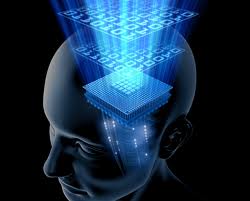I would like to thank fredphillips.wordpress.com for this guest blog post, which shows, that we humans are not so different; and if you ask the universe (or the internet) you will find people out there who you have a lot in common with. 🙂 thanks fred!
There are five things that are essential for our health and happiness. I call these, oddly enough, The Five Essentials. Catchy, eh?
We are in the midst of enormous suffering on the planet. Rates of disease are spiraling upwards. Bullying is an epidemic, especially in our schools. Regional and domestic conflicts abound. Many magnificent species are disappearing, or at the risk of disappearing, from the planet.
I could go on and regale you with more depressing stuff, but I really don’t want you to stop reading.
The truth is (and I believe this with all my heart), there is a solution to all this misery and it has to do with … you guessed it … The Five Essentials. So let’s get right to it. Here they are:
- To have an awareness of the truths of our existence
- To feel good about ourselves
- To heal our emotional pain
- To eat and drink healthy stuff
- To get active
Let’s briefly examine each of these essentials to see what they’re all about. (Yes, I know, a couple of them are rather self evident.)
1. To have an awareness of the truths of our existence:
Understanding the truths of who we really are and why we’re really here on the planet (there is little evidence to suggest it has anything to do with getting rich & famous) is critical if we have any hope of changing human behaviour. It certainly inspired me to change mine. I think if we knew for instance, that we live in oneness with God and everything else that exists, we would not treat each other the way we do. We wouldn’t start wars. We wouldn’t exploit the animal kingdom and we wouldn’t pollute. We would let go of fear. We would live with more compassion and love. We would be more altruistic. And we would be more humble.
If you want to know more, immerse yourself in spirituality. Talk to spiritual people. Read books by Eckhart Tolle, Caroline Myss, Wayne Dyer, Neale Donald Walsch and my own book, The History Teacher. Read my spiritual posts at fredphillips.wordpress.com.
2. To feel good about ourselves:
If we all felt good about ourselves … if we all felt lovable, worthy, good enough and empowered … again, we would not behave the way we do. We would not mistreat others. We would be more kind and forgiving. We would be more honest. We wouldn’t put people out of work. We would eat healthier foods.
If you want to change the way you feel about yourself, just be kind.
3. To heal our emotional pain:
We are a society full of unresolved emotional pain. We are loaded with anger, grief, shame, guilt and resentment. If we have any hope of creating peace on earth (one of the reasons we’re here), we need to release this pain. We need to transform it into something healthier and more positive.
If you want to heal your unresolved emotional pain, forgive who you need to forgive, apologize who you need to apologize to, cry if you need to and when you feel anger, scream into a pillow until you feel better.
4. To eat and drink healthy:
With all due respect to those who earn their living working in the fast food, junk food and processed food industries, if we really want to put an end to cancer and all other forms of disease, we need to eat better. We especially need to drastically reduce our sugar intake and eliminate artificial sweeteners and gmos. Why? Because this stuff acidifies our bodies and weakens our immune systems (80% of our immune system is situated in our gastrointestinal tract), leaving us susceptible to disease.
If you want to do one simple thing to improve your diet and your health, start eating fermented foods, especially, sauerkraut. It will put much needed healthy bacteria in your gut.
5. To get active:
As a whole, we are far too sedentary and we’re paying a high price for it. Our bodies aren’t fit, leaving us vulnerable to stress and disease. We need to get active. I highly recommend martial arts or yoga, but if you do nothing else, go for a walk every day!
I believe in my heart that having an awareness of these Five Essentials, understanding them and incorporating them into our daily lives will bring us peace of mind, joyful living and love (sign me up for that). They will bring us happiness (that too)!
